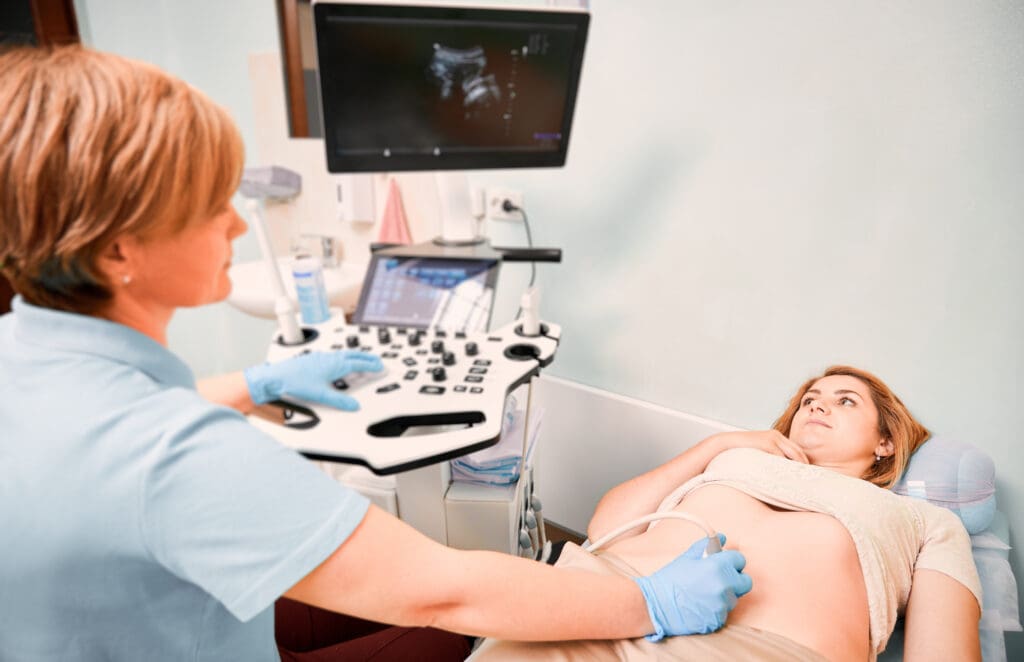Gynecological Oncology: What It Is, Who We Treat, and How Our Clinic Supports You
If you or someone you care about has been referred to gynecological oncology, you probably have questions and want clear, caring answers. Gynecological oncology is a branch of obstetrics and gynecology that focuses on diagnosing and treating cancers of the female reproductive system, such as cervical, ovarian, uterine (endometrial), vulvar, and vaginal cancers. At our clinic, we combine advanced treatments with support for your overall well being, so you feel informed and cared for throughout your care.
We offer fast diagnostics, same week consultations, minimally invasive and robotic surgery, chemotherapy, and a range of supportive services. Our goal is to help you get the best results with as little disruption to your daily life as possible.

What Is Gynecological Oncology? Definition, Conditions, and When to See a Specialist
Gynecological oncology, sometimes called gynecology oncology or gynecological oncology, focuses on cancers that start in the chemotherapy, ovaries, uterus, fallopian tubes, vulva, or vagina. You might be referred to a gynecological oncologist if you have abnormal bleeding, pelvic pain or bloating, unusual imaging results, abnormal Pap or HPV tests, or a biopsy that shows precancer or cancer.
Seeing a specialist early can help you get coordinated care, make treatment decisions faster, and improve your chances for good outcomes. Our board certified gynecological oncologists have experience with complex surgeries, advanced therapies, and creating care plans that fit your needs.
Gynecological Oncology Near Me: How to Choose the Best Gynecology Oncology Care for You
When you search “gynecological oncology near me” or “gynecology oncology near me,” consider these factors:
- Experience and volume in treating your specific cancer (ovarian, uterine, cervical, vulvar, vaginal)
- Availability of minimally invasive and robotic surgery when appropriate
- On site infusion and access to targeted therapy or immunotherapy
- Multidisciplinary team (radiation oncology, pathology, genetics, fertility)
- Clinical trials access and care pathways that follow national guidelines
- Supportive services: nurse navigation, social work, nutrition, pain management
- Transparent scheduling, second opinions, and insurance assistance
Our center coordinates imaging, biopsy, medical oncology, radiation oncology, and surgery so your plan is efficient and stress reduced.

Best Gynecological Oncology Doctors Near Me: What to Look For in a Top Specialist
Top gynecological oncologists combine surgical skill, evidence based medical therapy, and compassionate communication. Look for:
- Board certification in gynecological oncology
- Experience with complex debulking, lymph node assessment, and fertility sparing techniques
- Strong outcomes data and patient reviews
- Clear explanations of risks, benefits, and alternatives
- Access to tumor boards and second opinions
We participate in clinical trials and follow national guidelines. Our specialists personalize your care based on your goals, whether you want the least invasive treatment, to preserve fertility, or need a more aggressive approach.
Gynecological Oncology vs Gynecological Oncology: Is There a Difference?
Both terms refer to the same specialty. “Gynecological oncology” is the standard term; “gynecological oncology” is a common variant. Regardless of spelling, the focus is cancer care for the female reproductive tract with integrated surgery, systemic therapy, and supportive services.
What Cancers Do Gynecological Oncologists Treat? Cervical, Ovarian, Uterine (Endometrial), Vulvar, and Vaginal
Cervical cancer: Often related to persistent high risk HPV. Screening with Pap and HPV testing detects precancerous changes early. Treatment may include surgery, radiation, and systemic therapy.
Ovarian cancer: Symptoms can be hard to notice, such as bloating, feeling full quickly, or pelvic pressure. Treatment usually involves surgery and chemotherapy, and sometimes targeted therapy.
Uterine (endometrial) cancer: Common symptom is postmenopausal bleeding. Many patients are candidates for minimally invasive hysterectomy with lymph node assessment.
Vulvar and vaginal cancers: These are rare and can be related to HPV or long term skin conditions. Treatment may include surgery, radiation, and other therapies. Our team will explain your diagnosis and options, and help you make decisions in a calm, supportive environment.

When cancer of the female reproductive system is suspected or diagnosed, you deserve clear, understandable information: what’s happening, why surgery or treatment is recommended, and how the care plan is built on the latest evidence.
Comprehensive Care at a Center for Gynecological Oncology: Diagnosis, Treatment, and Survivorship
At our center for gynecological oncology, you can expect:
- Timely diagnostics: pelvic ultrasound, MRI/CT/PET when indicated, and expert pathology review
- Staging and planning: precise staging informs surgery and medical therapy choices
- Multidisciplinary treatment: coordination among gynecological oncology, medical oncology, and radiation oncology
- Survivorship planning: schedule for follow up, symptom monitoring, late effect screening, and healthy lifestyle guidance
- Navigation and access: Our nurse navigators help schedule your appointments and answer your questions between visits. We create a care plan that considers your medical needs, personal goals, and practical concerns like work, family, and transportation.
Minimally Invasive and Robotic Surgery in Gynecological Oncology: Benefits, Recovery, and Safety
For many uterine, cervical (early stages), and select ovarian or pelvic masses, minimally invasive or robotic surgery may reduce pain, scarring, and recovery time. Benefits can include:
- Smaller incisions and less blood loss
- Shorter hospital stays and faster return to activities
- Lower risk of wound complications. Your surgeon will talk with you about whether laparoscopy or robotic surgery is right for you, depending on your tumor type, size, how far it has spread, and your overall health. For advanced ovarian cancer, open surgery may be needed to remove all cancer, and your safety and best outcome will guide this decision.
Chemotherapy, Targeted Therapy, and Immunotherapy in Gynecological Oncology: What Patients Should Know
Systemic treatments are tailored to your cancer biology and stage:
- Chemotherapy: Common for ovarian and advanced or recurrent uterine/cervical cancers; often given in cycles with supportive medications to reduce side effects.
- Targeted therapy: Focuses on specific tumor pathways; may include PARP inhibitors in certain ovarian cancers or other targeted agents based on testing.
- Immunotherapy: This treatment helps your immune system find and attack cancer cells. It is used for some cervical and endometrial cancers with certain biomarkers. Our infusion team will watch you closely, help manage any side effects, and coordinate your lab tests and scans to see how you are responding.
Fertility Preservation and Family Planning in Gynecological Oncology
If you want to have children in the future, talk to your doctor about fertility preservation before starting treatment. Options can include freezing eggs or embryos, saving ovarian tissue, or having fertility sparing surgery in some early stage cases. We work quickly with fertility specialists so your cancer care is not delayed. Your oncologist and fertility doctor will explain the risks, timing, and chances of success, so you can make the best decision for you.

Second Opinions and Multidisciplinary Tumor Boards: Getting the Right Plan the First Time
Second opinions are common and encouraged. They can help confirm your diagnosis and stage, compare different treatment options, and make sure your plan follows the latest guidelines. At our clinic, your case is reviewed by a team of experts in gynecological oncology, pathology, radiology, radiation oncology, and genetics, so you get input from many specialists at once.
Clinical Trials and Innovations in Gynecological Oncology: Access, Safety, and What to Expect
Clinical trials can give you access to new treatments that are not yet widely available. Joining a trial is your choice and follows strict safety rules. If a trial is right for you, we will talk about the possible benefits and risks, how it works, and what is covered. Whether you join a trial or choose standard care, your treatment plan will be tailored to you and based on the best evidence.
Screening, Prevention, and HPV Vaccination: Lowering Your Risk for Gynecological Cancers
Prevention and early detection save lives:
- Pap and HPV testing per guidelines detect cervical precancer and cancer early
- HPV vaccination reduces the risk of cervical, vaginal, and vulvar cancers
- Prompt evaluation of abnormal bleeding, pelvic pain, bloating, or weight loss
- Maintaining a healthy weight, staying active, and managing other health conditions can help lower your risk. Our clinic supports you with regular screenings and quick evaluations if you have new symptoms.

Genetic Testing and Counseling: BRCA and Lynch Syndrome in Gynecological Oncology
Some ovarian and uterine cancers are linked to inherited syndromes like BRCA1/2 or Lynch syndrome. Genetic counseling and testing can:
- Inform your treatment (some targeted therapies work best with certain mutations)
- Guide preventive strategies for you and your family
We help clarify what follow up care you need after treatment. We also make it easy to access genetic counseling and provide clear summaries you can share with your family.
Supportive Care: Pain, Nutrition, Sexual Health, Pelvic Floor, and Emotional Well Being
Whole person care is essential. We offer:
- Pain and symptom management to keep you comfortable and active
- Nutrition support for treatment side effects and strength
- Sexual health counseling, including vaginal care after radiation or surgery
- Pelvic floor therapy for recovery after surgery or radiation
We offer counseling and support groups to help reduce anxiety and improve coping. We can also assist with work notes, disability paperwork, and finding transportation resources to make things easier for you.
Your First Visit to Gynecological Oncology: How to Prepare and What Success Looks Like
Please bring your imaging CDs or reports, pathology results, medication list, and any questions you have. You might want to bring a loved one to help take notes. At your visit, we will go over your history, do an exam, talk about your likely diagnosis and stage, and explain your treatment options, such as surgery, chemotherapy, radiation, targeted therapy, or immunotherapy. We will also decide on next steps and timing together.
Success means you leave with a clear plan, quick scheduling, and a team you can contact between visits. In the long run, success is about getting effective treatment, managing side effects well, and returning to the routines and relationships that matter most to you.s well, and returning to the routines and relationships that matter most to you.
For more information about our academic and training initiatives, visit Liv Hospital Academy
Frequently Asked Questions for Gynecological Oncology
Can I get fertility sparing options in gynecologic oncology?
Select early stage cases may allow fertility sparing surgery or pre treatment fertility preservation (egg/embryo freezing).
What treatments are used in gynecologic oncology?
Depending on the cancer type and stage: surgery, chemotherapy, targeted therapy (e.g., PARP inhibitors), immunotherapy, and radiation therapy. Many patients receive a combination, coordinated by a multidisciplinary team.
What symptoms should prompt a gynecologic oncology evaluation?
Abnormal vaginal bleeding (especially postmenopausal), persistent bloating or pelvic pain, early fullness when eating, unexplained weight loss, abnormal Pap/HPV results, or a suspicious mass on imaging.
What is the recovery time for gynecologic oncology surgery?
Recovery varies by procedure and approach:
Minimally invasive/robotic hysterectomy: many return to light activity in 1–2 weeks and fuller activity by 4–6 weeks.
Open abdominal surgery (e.g., ovarian cancer debulking): hospital stay may be several days, with recovery often 6–8 weeks or longer.
Your team will personalize timelines based on your health and procedure details.
What is the difference between gynecology and gynecologic oncology?
Gynecology treats general female reproductive health (routine exams, benign conditions, obstetrics). Gynecologic oncology focuses specifically on cancers of the reproductive tract and provides advanced cancer surgery and systemic therapies.
What does a gynecologic oncology doctor do?
They evaluate symptoms and test results, perform cancer surgeries (including complex staging and debulking), coordinate chemotherapy/targeted therapy/immunotherapy, collaborate with radiation oncologists, discuss fertility options, and guide long term survivorship care.
What is gynecologic oncology?
Gynecologic oncology is a subspecialty of obstetrics and gynecology focused on diagnosing, staging, treating, and providing follow up care for cancers of the female reproductive system, including ovarian, uterine (endometrial), cervical, vulvar, and vaginal cancers.




